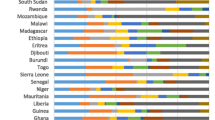Abstract
Regionalized perinatal care is intended to guarantee pregnant women and neonates access to appropriate care regardless of ability to pay. Its effectiveness depends on the willingness of hospitals to transfer high-risk patients according to established protocols and affiliations.
This study examines maternal transfers (n = 896) to Cook County Hospital (CCH), a public facility and a designated perinatal center in Chicago. In 1987 and 1988, the majority (68%) of maternal transfers to CCH came from out-of-network hospitals, and 52% of these came directly from another perinatal center. The data indicate that 62% of the out-of-network transfers who delivered were medically high-risk. The study also documents the transfer of women in active labor, a violation of federal law.
The term “perinatal dumping” is introduced to mean the transfer of high-risk pregnant women between hospitals for economic rather than medical reasons. Strategies for safeguarding the integrity of regionalized perinatal care are discussed.
Similar content being viewed by others
Rights and permissions
About this article
Cite this article
Handler, A., Rosenberg, D., Driscoll, M. et al. Regional Perinatal Care in Crisis: A Case Study of an Urban Public Hospital. J Public Health Pol 12, 184–198 (1991). https://doi.org/10.2307/3342503
Published:
Issue Date:
DOI: https://doi.org/10.2307/3342503




